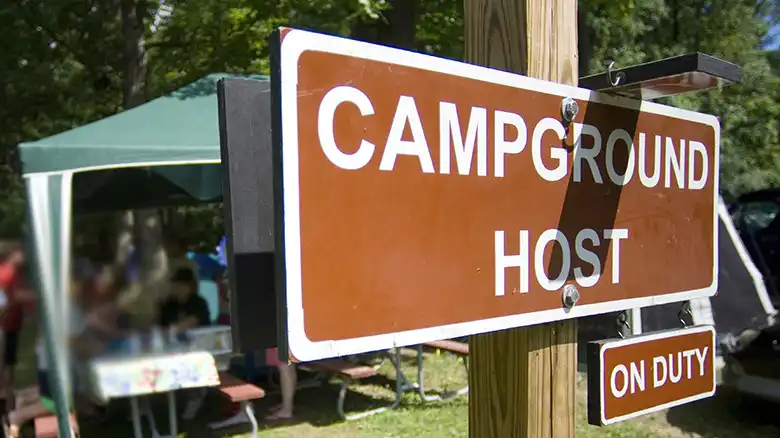With so many RV options on the market, it can get confusing determining the best recreational vehicle for your travel needs and budget. From the opulent Class A motorhomes to the nimble Class B camper vans, each category presents its unique set of features and advantages. As aspiring RV enthusiasts grapple with the complexities of selecting the ideal rig, questions arise about compatibility, use cases, and suitability for different lifestyles.
Class A Motorhomes, resembling luxurious tour buses, promise unparalleled comfort, but are they the best fit for extended road trips? Does the compact allure of Class B Motorhomes overshadow the spaciousness of their counterparts?
In this comprehensive guide, we examines the most popular types of RVs, key features, ideal use cases, and what to consider before buying your first RV. Whether you’re a seasoned RVer or a novice exploring the idea of life on the road, this guide will empower you to make an informed choice. Let the adventure begin!

Class A Motorhomes: Luxury on Wheels

Class A motorhomes are the kings of the road, resembling luxurious tour buses. These opulent homes-on-wheels boast spacious interiors, often equipped with all the amenities of a traditional home. They are the largest, most luxurious RVs built on heavy-duty truck chassis. They offer ample living space including:
- Full bathrooms with showers
- Spacious kitchens
- Plush bedrooms
Self-propulsion with powerful engines provides enhanced mobility. Class A RVs are ideal for long trips or full-time living, Class A motorhomes offer unmatched comfort and style. With expansive living spaces, these vehicles are perfect for those who prioritize a homey atmosphere on the road.
Class B Camper Vans: Compact and Efficient

Compact and nimble, Class B motorhomes, also known as camper vans, are built on van chassis. Smaller than Class A and C motorhomes, they average 18-22 feet. Despite their smaller size, they pack a punch with smart space utilization. Key amenities packed cleverly into the compact space include:
- Pull out kitchen units
- Curtain partitions
- Convertible beds
- Wet baths
Their convenient size and superior gas mileage make Class B motorhomes great for short trips and easy parking. They are perfect for travelers seeking a balance between convenience and maneuverability, Class B motorhomes are great for weekend getaways or those who prefer a more spontaneous travel style.
Class C Motorhomes: The Best of Both Worlds

Class C motorhomes strike a balance between Classes A and B, often featuring a distinctive over-cab sleeping area. Based on a truck or van chassis with an attached alcove living area, they offer comfort without the size of Class A vehicles. Class C features consist of:
- One or more beds
- Kitchen and dining space
- Bathroom with a shower in some models
Class C motorhomes offer flexibility for family adventures at more moderate prices than Class A options. Their shorter length improves parking and driving ease compared to the largest RVs.
They are versatile, family-friendly, and suitable for various trips, accommodating a range of travel preferences. Their manageable size makes them practical for both novices and experienced RVers. Consider Class C when you desire a comfortable living space with the flexibility to navigate various terrains.
Fifth Wheel Trailers: Spacious and Stable Living

Fifth wheel trailers hitch to a specialized fifth-wheel hitch in the bed of a pickup truck, providing additional stability and interior space. They are towable RVs containing stand-up residential amenities pulled by pickup trucks with an adaptable hitch in the truck bed. Typical fifth wheel features include:
- Separate bedrooms
- Full bathrooms
- Multi-room floorplans
- Large holding tanks
The spacious interiors and solid road performance make fifth wheels ideal for full-time RV living and long hauls. They are perfect for those seeking a spacious and stable RV experience. Ideal for long-term or seasonal stays in one location.
Toy Haulers: Adventure-Ready RVs for Gear Enthusiasts

Toy haulers are equipped with a garage space for transporting recreational “toys” like ATVs or motorcycles. They integrate garage space into trailers to transport motorcycles, ATVs, snowmobiles, or other recreational gear. They add:
- Cargo ramp doors
- Equipment tie downs
- Multipurpose rear living quarters
Toy hauler trailers enable campers to bring bulky toys on adventures in secured storage when not in use. They are for adventure enthusiasts who want to bring along their gear. Great for outdoor enthusiasts and thrill-seekers.
Travel Trailers: Versatile Options for All Budgets

Travel trailers offer the most size, floorplan and amenity options among towable campers. More modest dimensions than fifth wheel behemoths improve maneuverability. Travel trailers contain:
- Sleeping for around 4-8 people
- Kitchens and dining areas
- Bathrooms with showers
Varied travel trailer choices meet needs ranging from lightweight basic models to expansive luxury designs.
Pop-Up Trailers: Affordable and Compact for Easy Towing

Pop-up trailers provide compact, affordable towable trailers which “pop up” once parked to create ample headroom. Key aspects consist of:
- Canvas wall sidings
- Lifting roof mechanism
- Interior convertible beds/cushions
The compact size aids towing and storage while lowered. Popped-up, spacious interiors comfortably sleep around 6 people on camping adventures.
Teardrop Trailers: Retro Camping with Modern Comfort

Even more diminutive than pop-ups, teardrop campers resemble retro 1950’s trailers but with modern amenities packed inside. Basic features cover:
- Cozy sleeping for 2 people
- Basic kitchenettes
- Optional wet bathrooms
The tiny teardrop footprint enables thrifty travelers to enjoy camping in a unique classic package.
Truck Campers: Flexible for Off-Road Adventures

Truck campers insert into pickup truck beds to transform your vehicle into a mini-motorhome. Self-contained amenities consist of:
- Angled pop-up tops for standing room
- Cab-over sleeping areas
- Compact kitchenettes
Truck camper flexibility makes them ideal for off-roading to remote camping locations inaccessible to larger RVs. Short and long bed trucks can accommodate slide-in truck campers.
Choosing the Right RV Type for Your Lifestyle
Choosing the right type of RV involves considering several important factors to ensure that it aligns with your preferences and needs. Here are some key questions to help guide your decision-making process:
- Intended Use: Determine how you plan to use your RV. Will it be parked for extended periods, used for weekend getaways, or serve as a full-time residence?
- Occupancy: Consider the number of people who will be using the RV. Different models offer varying sleeping capacities and space configurations. Ensure there’s sufficient room for everyone, including storage space for belongings and food.
- Frequency and Duration of Use: Assess how often and for how long you plan to use the RV. This can influence the size and features you need. Full-time living may require more amenities and comfort than occasional weekend trips.
- Weather Considerations: Take into account the weather conditions during your RV usage. Some models may be better suited for specific climates. For example, trailers with fold-down tents may be ideal for summer but less suitable for winter use.
- Travel Distance: Consider the distances you’ll be traveling. The weight and aerodynamics of the RV can impact fuel efficiency. If you’re planning long-distance trips, fuel economy becomes a more significant factor.
- Budget: Define your budget for both the RV purchase and ongoing expenses. Larger and more luxurious RVs tend to come with higher price tags. Find a balance between your desired features and financial considerations.
- New vs. Used: Decide whether you prefer a new or used RV. Used models are often more budget-friendly, but it’s essential to strike a balance between cost and reliability. Avoid models that may be too old to ensure reliability.
By carefully considering these factors, you can narrow down the options and find an RV that suits your lifestyle, preferences, and budget, providing a more enjoyable and satisfying experience on the road.
Frequently Asked Questions About RVs
What Type of RV is Best for Beginners?
Choosing the best RV for beginners depends on personal preferences. Class B motorhomes or travel trailers are often recommended for their manageable size and ease of use. However, travel trailers provide the most versatility and balance of features, sizes, and affordability for first-time RV buyers.
What You Should Consider Before Buying Your First RV?
It is always best to examine your intended travel scenarios – from weekend getaways to full-timing on the road – when deciding which RV type best aligns with your needs and budget. Test different recreational vehicles to discover the right fit. With limitless adventure awaiting, find the perfect RV to chart your own journey across the open road or winding trails!
Are There Any Finance Options Available for RVs?
Yes, various financing options are available, including loans and RV financing specialists. Explore these options to find the one that suits your financial situation.
Conclusion
The world of RVs is diverse, offering options for every lifestyle. Whether you’re a seasoned RVer or a beginner, there’s an RV type waiting to be your home on the open road. Take the time to explore, research, and find the perfect RV to make your travel dreams a reality. Safe travels!


